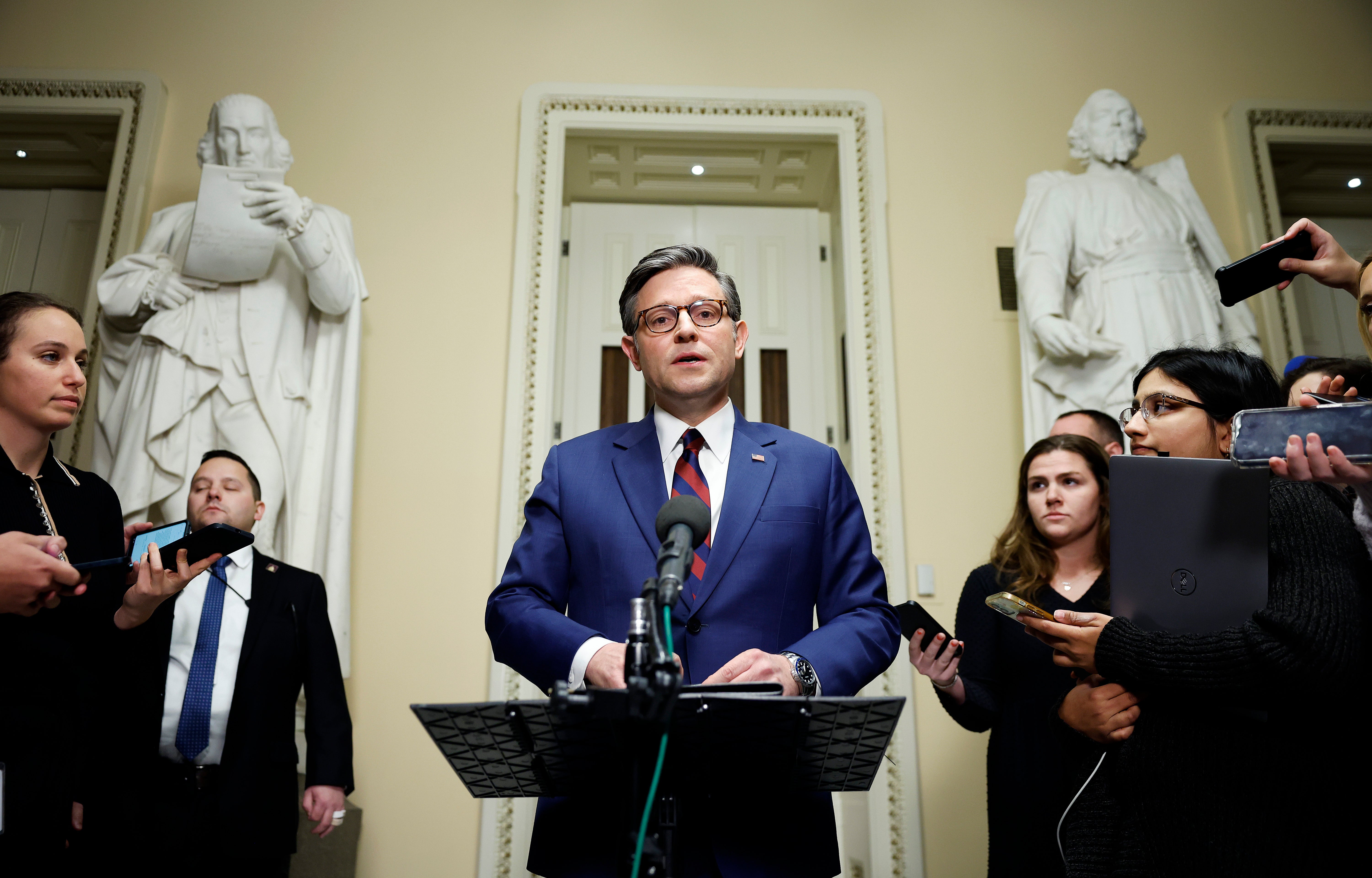House debuts new rules including one that makes it harder to boot the speaker
A motion to vacate, the process for removing the speaker, will now require nine sponsors to be considered on the House floor
Your support helps us to tell the story
From reproductive rights to climate change to Big Tech, The Independent is on the ground when the story is developing. Whether it's investigating the financials of Elon Musk's pro-Trump PAC or producing our latest documentary, 'The A Word', which shines a light on the American women fighting for reproductive rights, we know how important it is to parse out the facts from the messaging.
At such a critical moment in US history, we need reporters on the ground. Your donation allows us to keep sending journalists to speak to both sides of the story.
The Independent is trusted by Americans across the entire political spectrum. And unlike many other quality news outlets, we choose not to lock Americans out of our reporting and analysis with paywalls. We believe quality journalism should be available to everyone, paid for by those who can afford it.
Your support makes all the difference.The House Republican leadership revealed their new rules for the 119th Congress Wednesday, including a measure making it more difficult to remove the speaker of the House.
The speaker, Mike Johnson, and other Republicans shared the change in the rules during a press conference in November after the party’s leadership elections.
A motion to vacate, the process for removing the speaker, will now require nine sponsors to be considered on the House floor.
“A resolution causing a vacancy in the Office of the Speaker shall not be privileged except if it is offered by a member of the majority party and has accumulated eight co-sponsors from the majority party at the time it is offered,” the package says.
During the 118th Congress, just one lawmaker was needed to be able to push for a vote on the floor to vacate the chair to remove the speaker. Former Florida Rep. Matt Gaetz used a motion to vacate to prompt the removal of then-Speaker Kevin McCarthy in the weeks leading up to Johnson’s ascension.
Similarly, rightwing Republicans used the threat of a motion to vacate in 2015 to remove then-Speaker John Boehner, ABC News noted. Democrats subsequently changed the rules to require a majority vote of the chamber to back the motion. McCarthy was pushed to change it back in order to win the initial support of his party’s conservatives, which he needed to become speaker.
Following the election of a speaker, the House will vote on the rules package, which needs a simple majority to pass. With a narrow majority and no Democratic help expected, Johnson cannot afford to lose many Republican votes. This vote usually takes place after the election of the speaker and the swearing-in of members.

But Johnson may struggle to return to the speakership. The vote on his continuing hold on the gavel comes after a number of Republicans became irate at Johnson during a government spending fight before Christmas that almost led to a shutdown.
Georgia Rep. Marjorie Taylor Greene filed a motion to vacate last year months into Johnson’s speakership, but the Democrats joined with nearly all the Republicans to vote down the measure.
The threat of removal may be lessened by the new rules package, but it doesn’t completely disappear. Maryland Republican Rep. Andy Harris, the chair of the Freedom Caucus, and Rep Dusty Johnson of South Dakota, the chair of the Main Street Caucus, negotiated the deal that raised the threshold. They both appeared with Johnson during a press conference in November.
“We had an opportunity to set the motion to vacate at a higher than number one, that motion to vacate will be set at nine in return for getting rid of some amendments that probably would have divided this conference,” Dusty Johnson said at the time.
He added that the deal lets the House G.O.P. be “in a better position to move forward with the Republican agenda to make sure that Speaker Johnson, South Dakota Senate Leader John Thune, and our President Donald Trump have an opportunity to go forward."
Harris also argued that the higher threshold lets the caucus take action on Trump’s agenda.
“We’ve been able to work across the conference to eliminate the controversial issues that could have divided us and move forward together to deliver on the President’s agenda. That’s it,” he said.

Join our commenting forum
Join thought-provoking conversations, follow other Independent readers and see their replies
Comments